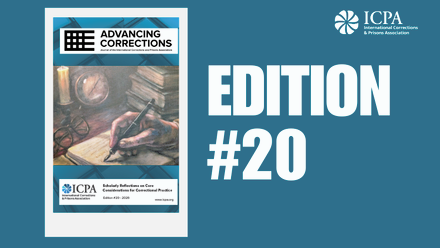R4JUST: Violent extremism – challenges of training justice professionals
ICPA is a partner in the R4JUS Project. It aims not only to expand the use of Radicalization Risk Assessment tools in prison and probation contexts through training activities to a broader audience, constituting a larger use case anonymized database, but also to raise the awareness and provide training to judges and prosecutors on using risk assessment information to support sentencing, which is of particular interest in criminal cases involving individuals accused of violent extremism related crimes and/or terrorist involvement.
Criminal justice professionals’ role is highlighted in effective and timely prevention, identification, management and rehabilitation of violent extremists or terrorist offenders. This is especially relevant in the prison, probation, law enforcement, and judicial contexts, whose professionals range from frontline to decision-makers dealing with the phenomenon. Once such is recognised, it becomes imperative for justice professionals to have proper training.
Recognising the role of justice professionals in preventing and countering violent extremism (P/CVE), more than 20 professionals from the Directorate-General for Reintegration and Prison Services, the Portuguese Criminal Police (Polícia Judiciária), academics and students from fields such as Psychology and Criminology, joined forces, at a National seminar in the scope of the R4JUST project, to discuss their role in preventing and countering violent extremism. Moreover, they shared their thoughts on current challenges to their training, including the pressing need to restructure their training curricula.
The Seminar included presentations by Vítor Costa (BSAFE Lab/University of Beira Interior), Pedro Liberado (IPS_Innovative Prison Systems) and Ana Mota Teles (Faculty of Medicine, University of Porto).
In addition to presenting the project objectives and relevant P/CVE concepts, an analysis of the EU Security agendas acted as the starting point for discussing justice professionals’ training in European countries.
The discussion showcased the professionals’ eagerness to receive training on the subject, as well as an understanding of its relevance, especially in the current world context. However, they reported that the current lack of training could be attributed to Portugal’s perceived low risk and the lack of awareness, knowledge and information sharing in the field.
Thus, the actions and products developed by the R4JUST project respond to the needs reported by the justice professionals, since the project aims to provide training to judicial, prison and probation staff and to promote the discussion and awareness of these issues, through seminars and national round tables.
The R4JUST National Seminar took place online on March 18, 2021, and was organized by BSAFE Lab / University of Beira Interior, in collaboration with IPS_Innovative Prison Systems.

